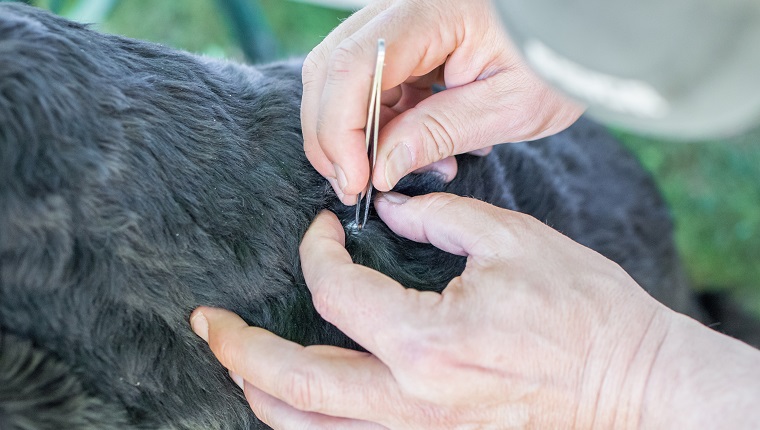Tick paralysis in dogs is a medical condition that involves the toxins present in the saliva of ticks provoking a reaction from a dog’s nervous system.
This reaction can result in a series of symptoms and, in some cases, paralysis. The paralysis can set in around a week after a tick first attaches itself to a dog.
If you see signs that your dog might be suffering from paralysis or other concerning symptoms after a tick bite, then you must consult your veterinarian immediately. Here’s what you should know about the symptoms, causes, and treatments of dog tick paralysis in dogs.
Symptoms Of Tick Paralysis In Dogs
Tick paralysis in dogs can bring on a range of symptoms that usually get progressively worse and more severe. Some of the most common symptoms include:
- Dilated pupils
- Loss of hind leg coordination
- Dragging the back legs
- Vomiting
- Drooling
- Breathing issues
- Coughing a lot
In general, it’s common for symptoms to start around a week after a tick first attaches itself to a dog.
Causes Of Tick Paralysis In Dogs

The cause of dog tick paralysis in dogs is a neurotoxin that’s present in a tick’s saliva.
When a tick attaches itself to a dog, its saliva can cause a reaction in the dog’s nervous system.
Veterinary Treatments
If you worry that your dog is suffering from dog tick paralysis, then your veterinarian will want to conduct a physical examination in order to try and locate the tick. Additionally, they will monitor all of your dog’s symptoms.
When it comes to treatment, physical removal of the tick is key. If the tick cannot be located, a topical treatment can also be used to attempt to kill it.
While the vet attempts to remove the tick, the dog will usually have to stay in hospital so that their symptoms can be carefully monitored and stabilized.
While your dog recovers, your vet may prescribe medicine. As always, if your vet prescribes any medicine for your dog, it is vital that you stick to the precise dosage and frequency instructions and complete the full course of medication.
Has your dog ever suffered from tick paralysis? What kind of tick prevention methods do you use? Tell us all about it in the comments below.









